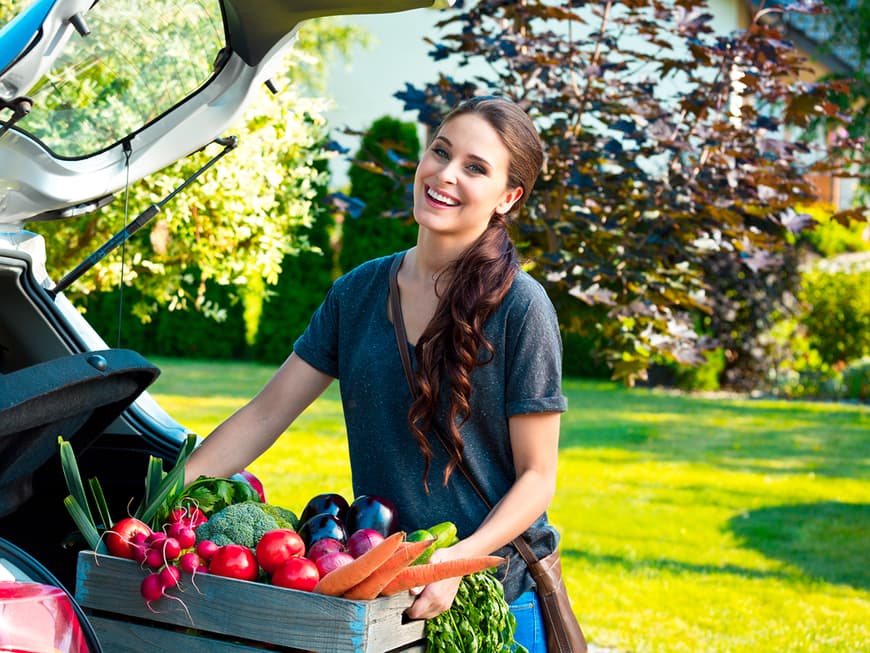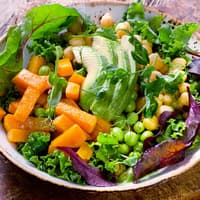
Living vegan - the advantages
Goingvegan has many benefits and positive effects for the environment. Animal welfare is the top priority for most vegans. They do not tolerate animals suffering in factory farming. Neither in meat production, nor in its use for the textile or pharmaceutical industries. The same applies to milk and egg production.
Environmental protection also plays a major role. Livestock farming causes emissions (greenhouse gases) that significantly contribute to climate change. In addition, a great deal of drinking water is consumed and forests have to make way for land used to grow animal feed. Plant-based food has a much better energy balance than meat.
Another advantage of a vegan diet is its positive effects on health. Vegans are less likely to suffer from obesity, high blood pressure and increased blood lipid levels - diseases of civilization that are promoted by eating too much meat.
Living vegan - the disadvantages
After some time, however, people who go vegan can develop deficiency symptoms. Those who eat a one-sided diet quickly suffer from protein and vitamin deficiencies. Vitamin B12, vitamin D, zinc and calcium are vital, but are hardly contained in a plant-based diet. Nuts, pulses and food supplements prove to be helpful. Going vegan and getting enough vitamins and nutrients is not easy and requires a lot of discipline.
Iron is also one of the nutrients that is difficult to absorb in sufficient quantities on a purely vegan diet. The iron content in beef is high. In spinach, however, as we now know, it is rather low. The same applies to unsaturated fatty acids (omega-3). They become increasingly important as we get older to keep us fit - and are mainly found in fish such as salmon.
Other disadvantages of a vegan diet: it is time-consuming and expensive! Cooking for yourself becomes a chore, and the food for a varied diet is not available everywhere. Eating out is difficult outside of big cities if you don't always want to eat just salad in a restaurant.
Not vegan, but sustainable: the clean eating trend
Clean eating is an alternative for people who want to eat consciously but don't want to give up meat and dairy products. This is a healthy lifestyle that focuses on unprocessed, fresh food as much as possible. Industrially produced food, ready meals and fast food are removed from the menu. Like a vegan diet, clean eating also requires you to take a close look at food and your diet, as you don't want to fall back on anything prefabricated. This also benefits the environment and animals, as meat from factory farming is taboo in clean eating due to the way animals are kept and the medication administered.
You might also be interested in this:
Food supplements for vegans: what is actually useful?
Vegan recipes
Vegan diet, vegan life - what exactly does that mean?
Vegan at work: How a plant-based diet works at work
Vegan baking & cooking: These plant-based alternatives are available
Almond milk: a healthy milk alternative - not just for vegans
Vegetarian recipes






